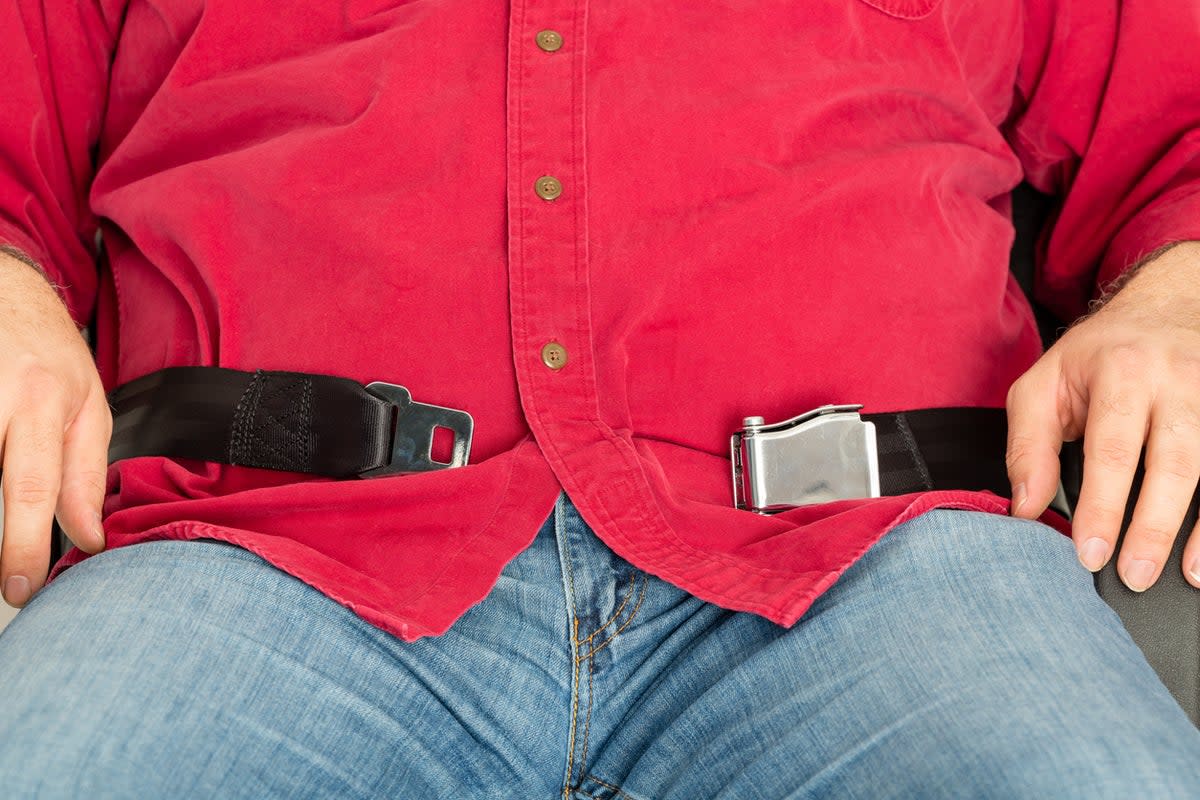Meet the man who wants to weigh every passenger before a flight

In the future, every airline passenger will be weighed: that is the claim of a British technology company which is seeking to reduce the amount of fuel burnt by jet aircraft.
As The Independent has reported previously, weighing every passenger before a flight can increase safety and cut the environmental harm caused by each flight.
At present, airlines use “assumed mass” – estimating the total weight of the passengers by using set figures. Typically each passenger is assumed to weigh 88kg.
Airlines may use gender to refine this figure, allowing 93kg for men and 75kg for women.
But unless there is a particular reason for a disproportionately higher weight, the estimates are typically significantly higher than the reality. If the captain knows the plane is carrying less weight than the “assumed mass’, he or she can load a little less fuel, which in turn uses less fuel to carry.
Furthermore, passengers can be assigned seats depending on their weight in order to balance the aircraft correctly so that it does not need any additional trim.
Passengers are very rarely weighed before a flight; the few exceptions are for small aircraft, where the weight of travellers and the balance of the aircraft are safety-critical.
While airlines stand to benefit from knowing the total weight, until now they have felt that passenger resistance to the concept, coupled with logistical challenges, make the idea unworkable.
But Nick Brasier, chief operating officer of the Berkshire start-up tech company, Fuel Matrix, has set out how passengers can be weighed discreetly.
“More airports and airlines are moving towards self-service bag drops, where the passenger uses a screen-based system to weigh their baggage on scales and answer questions about its contents.
“We’re not suggesting people should stand on the scales, but airports could fit ‘pressure pads’ in the bag-drop area in front of each screen.
“After the bag has been checked in, the system can ask, ‘Are you standing on the pressure pad?’
“If the passenger taps ‘Yes’, then the weight can be recorded and passed confidentially to the airline.”
The aircraft dispatcher and captain can then work together to calculate the exact “zero-fuel weight” of the aircraft (the weight of the plane itself plus all cargo and passengers) and load the appropriate amount of fuel.
An alternative location for weighing passengers is at the security checkpoint, during the full body scan that is increasingly used at airports.
The data gathered will be securely handled and destroyed after the flight lands at its destination.
Heavier passengers will not need to pay any extra, though some airlines insist that obese travellers who cannot comfortably sit in a standard seat buy an extra seat.
Mr Brasier believes that airlines currently load about one per cent more than they need, and consequently burn between 0.3 and 0.5 per cent more fuel in carrying the unnecessary surplus.
With airlines spending an estimated $200bn (£150bn) on fuel each year, the possible saving worldwide is up to $1bn (£750m).
In addition, safety will be enhanced by captains loading extra fuel when it is warranted – such as when several rugby teams are booked on the same flight.
Additional savings can be made by allocating passengers in the optimum seats to ensure that the aircraft is properly balanced. At present, pilots sometimes need to apply “trim” during level flight to counter an imbalance. This adds to the fuel burn.
Premium passengers are unlikely to take kindly to being told where to sit to balance the plane, but basic economy travellers can be assigned to the ideal locations to ensure the aircraft is well balanced.
Fuel Matrix is in discussions with a number of international long-haul airlines, including at least one British carrier, about deploying the system.
In 2015, Uzbekistan Airways said it would weigh passengers before takeoff in an effort to “ensure flight safety”.
In 2017, passengers at Helsinki airport were asked to step on to weighing scales before boarding by Finnair. This was a voluntary scheme to gather data on average passenger weights.
Also in 2017, Hawaiian Airlines implemented a new policy on flights to American Samoa to weigh passengers and assign them to specific seats to ensure weight is distributed evenly around the plane.

